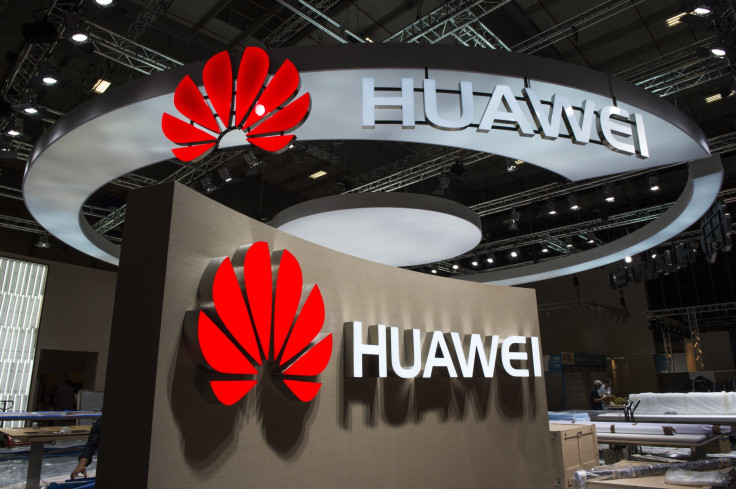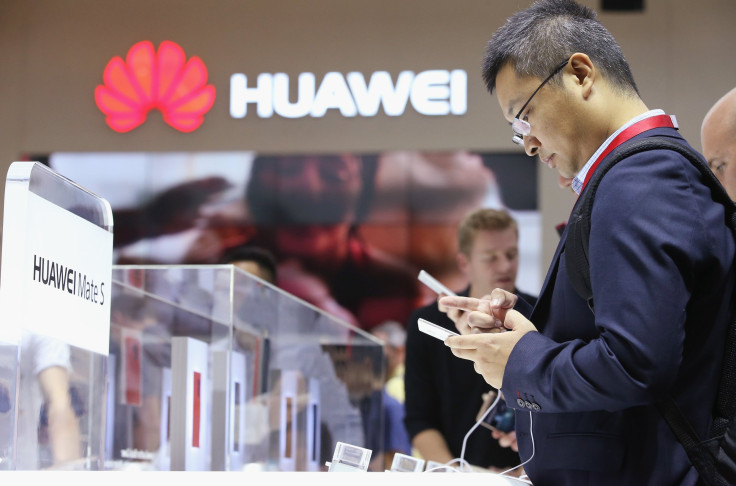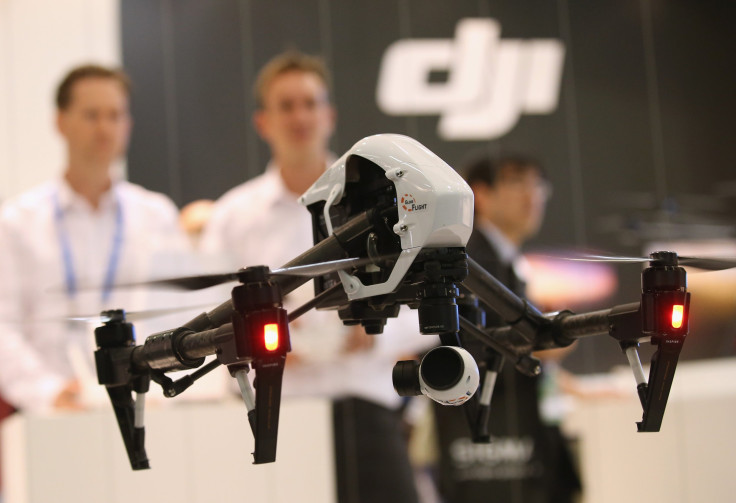CES 2016: China May Dominate Vegas With US-Bound Upstarts Like Huawei, Hisense, TCL, Faraday Future

When the hundreds of thousands of journalists, executives, government officials and exhibitors from over 150 countries walk into the main hall at the Las Vegas Convention Center for the International Consumer Electronics Show (CES) next week, the first booth they will see is Intel, but flanking the U.S. chip giant will be two big Chinese companies occupying prime real estate at the world’s biggest technology show.
It's a clear indication of how prominent companies from the planet's second-biggest national economy are becoming on the global stage.
Changdong and Hisense are both major TV manufacturers from China, but they are far from well-known brands among U.S. consumers. However, these companies and others — like ZTE, Huawei, DJI, TCL and Faraday Future — will all be making their presence felt in Las Vegas in the first week of January. They will be hoping to use the tech extravaganza as a springboard to become household names in the U.S.
Hisense made waves in 2013 when it took up the huge booth vacated by Microsoft in what was seen by some as a sign that the axis of global technology was shifting eastward. Fast-forward to CES 2016, and there's little doubt. “Make no mistake — the Chinese have arrived,” Tim Bajarin, president of Creative Strategies, said in a recent Tech.pinions blog post, adding: “They plan to disrupt the traditional CE players as much as possible and take market share away from them fast.”
Since then Hisense has acquired the rights to use the Sharp brand name and all its channel resources in North and South America — meaning Hisense completely took over Sharp's TV business in those regions. At CES 2016 the company plans to capitalize on its success to date to help capture an even bigger slice of the global market.
Power Shift
This sort of shift in power on a global scale has been seen before. In the early 1990s it was Japanese companies like Sony, Toshiba and Panasonic that began a land grab at CES, taking ever-bigger booths and using the show as a platform from which to capture a significant slice of the market.
With companies like Sony and Toshiba now struggling to stay relevant in markets like smartphones and PCs, there is a huge opportunity for Chinese vendors. One of those looking to make its mark is Huawei.

Huawei is the world’s third-biggest smartphone player and just two months ago launched the Nexus 6P in conjunction with Google. It is seen as a significant step for the Chinese company's brand awareness, but so far it has failed to make any impact on the U.S. market. One of the main reasons for this is the fact there are still lingering concerns over the compan's alleged ties to the Chinese government and the security of its products, primarily as a result of a House Intelligence Committee ruling in 2012 that said Huawei “cannot be trusted to be free of foreign state influence.”
Consumers may not be aware of the issue, but U.S. carriers surely are.
Uphill Struggle
At CES 2016, Huawei is expected to announce that it is bringing its budget Honor subbrand to the U.S., hoping that the change of identity, combined with budget smartphones with impressive hardware specs, will help it find success. But the company will face some roadblocks.
“For Huawei it’s an uphill task. They will have to go through regional carriers and open-market routes which would require lots of grassroots and brand-building efforts,” Neil Shah, principal analyst at CounterPoint Research, said. “Their devices are up to the mark in terms of design, technologies and pricing, but to win open-market consumer mindshare they will need a Xiaomi-like aggressive guerrilla marketing strategy,” Shah said. Xiaomi is another Chinese up-and-comer.
Shah believes going through tier-one carriers like Verizon and Sprint will simply not happen for Huawei in 2016.
Cracking the carriers is a challenge also faced by another Chinese smartphone company looking to make an impact at CES 2016.
TCL sells Alcatel OneTouch smartphones, which have quietly gained a significant portion of the U.S. market. According to figures from CounterPoint Research, in the third quarter of 2015, the brand saw growth of 123 percent in the U.S. market, becoming one of the top five smartphone players in the country, and it will be hoping the new products it unveils at CES will drive further growth.
Drones And Driverless Cars
Beyond smartphones and TVs, Chinese companies will have a presence in two of the hottest markets at the show — drones and autonomous cars.

DJI is the world’s biggest maker of consumer drones, and the Chinese company will be hoping to dominate once again at CES 2016, where there will be 27 exhibitors, with the marketplace covering 25,000 net square feet of exhibit space, a 200 percent increase over the 2015 show. DJI won’t have it all its own way at CES, but as the leading name in a rapidly expanding market, it shows that U.S. companies are now playing catch-up to companies from China in emerging categories.
Another nascent category that is still finding its feet is the driverless car. While no Chinese car manufacturer will be at CES, a Chinese national will be central to one of the most anticipated announcements at the show. Faraday Future is a secretive connected (internet-compatible), electric and autonomous car manufacturer based in Los Angeles and staffed with former Tesla employees — and it is set to unveil its first concept car in Las Vegas.
The man bankrolling Faraday Future is billionaire Jia Yueting, who owns LeTV, known as the “Netflix of China” but which also makes smartphones and TVs. Coincidentally (or maybe not), LeTV is set to make its CES debut in 2016 in launching the world’s largest 4K TV in Las Vegas.
There will be a note of caution for Chinese companies in emerging categories at CES 2016. A ban on hoverboards at the show means the big companies in the sector, which all come from China, won't be able to showcase their wares. Hoverboards (which don't actually hover but roll) were one of the most popular and controversial products of 2015. Indeed, the recent spate of reports about devices bursting into flames and subsequently being banned from sale on Amazon has left the entire industry in disarray.
CES runs Jan. 6-9 in Las Vegas.
© Copyright IBTimes 2024. All rights reserved.






















